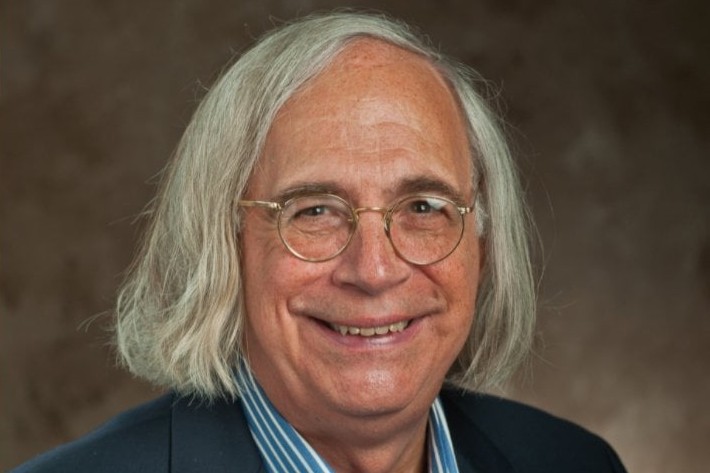Ayanna De’Vante Spencer, who earned her Ph.D. in Philosophy from Michigan State University this spring, has accepted a tenure-track assistant professorship at the University of Connecticut with joint appointments in Philosophy and Women’s, Gender, and Sexuality Studies.
Dr. Spencer is changing the status quo in the field of philosophy by combining activism with her research. Her dissertation, “Epistemologies of Criminalization: Tracking Epistemological Oppression in the Lives of Black Girl Survivors,” is the culmination of years of intellectual and activist work to interrupt sexual violence.
I chose to come to MSU for my Ph.D. because I appreciate and value the fact that every single philosopher in the department is socially engaged.
The dissertation examines how criminalized Black girl survivors in the United States face social, political, and epistemic oppression through “non-accidental epistemic burdens.” These burdens are what Spencer describes as “the requirement for survivors to prove to people with more socio-epistemic power than them what they already know about their own experiences of violence.”
The hierarchies of power examined within Spencer’s dissertation, such as judicial, administrative, and institutional hierarchies, provide mounting evidence to the importance of demanding more from people in power than ask that they merely “believe survivors.”

“There are lots of people who do believe survivors and rally around them, but that’s often not enough to get access to the resources that survivors need. The people with socio-epistemic power typically have more ability to determine what happens next based on their assessment on the survivor’s experience,” Spencer said. “’Believe survivors’ is important, and it is a rallying call, but my research aims to understand how we get to the root of the problem, which is an issue of power and not just about individual bad actors.”
As an undergraduate studying philosophy at Spelman College, Spencer was an activist and labor organizer active in Black feminist anti-sexual violence organizing on-campus, including the Women Against Violence Brigade. She sought to combine her activist work with her philosophy major, and her interest in studying sexual violence was piqued when she noticed that much of the sexual violence literature universalized women’s experiences of sexual violence and didn’t investigate race on a deeper level.
“[During undergrad], I was interested in what it could mean to conduct research about Black women and girls’ experiences of sexual violence in the U.S.,” Spencer said. “It’s not just the case that Black girl survivors are just dealing with racism, sexism, homophobia, and transphobia all at the same time, but they are also navigating an epistemological system structured around hierarchies of experts.”
As an undergraduate at Spelman, Spencer was a participant of the Mellon Mays Undergraduate Fellowship, an initiative from The Andrew W. Mellon Foundation designed to encourage fellows to enter Ph.D. programs that prepare them for professorial careers. This experience catalyzed Spencer’s decision to pursue her Ph.D. at MSU and continue her work advocating for survivors of sexual violence.
I want to encourage MSU students to stay open to possibilities and not accept the status quo as the way things have to be. Things can be different, but it takes people coming together and doing hard work and making big demands for change.
“I chose to come to MSU for my Ph.D. because I appreciate and value the fact that every single philosopher in the department is socially engaged,” Spencer said. “I was really looking for a graduate program that would allow me to explore what it meant to bridge activism and philosophy in a way that would be meaningful to myself and the communities I wanted to work with and support.”
During her time at MSU, Spencer continued her activist work through her involvement in organizations like Public Policy Associates, where she facilitated focus groups with Black girl students in the greater Detroit area to learn more about their experiences in school. This experience served as a starting point for Spencer’s interest in criminal injustice and sexual violence, which would later be the focus of her dissertation.
Spencer also worked for Girls for Gender Equity in Brooklyn, New York, which aims to disrupt school-to-prison and sexual-assault-to-prison pipelines, and she worked for the Firecracker Foundation, a Lansing nonprofit that provides comprehensive services and a holistic, safe space for child survivors and their families.
“The Firecracker Foundation has been instrumental for the greater Lansing area and, for me, it showed the power of local organizations in terms of supporting child survivors of sexual violence and their families,” Spencer said. “This experience solidified the ways in which I could be an engaged philosopher and do work that felt meaningful.”
Dr. Spencer starts her position at the University of Connecticut this fall and has already started envisioning how she will teach her courses in a meaningful way. In a national climate where movements like Black Lives Matter and Me Too have gained momentum, Spencer said she hopes to continue engaging with students about police violence and sexual violence in a way that is informative and enriching.
“So many professors in my life supported my activism and research and I want to do that for students who are already engaged in important social justice work,” she said. “I had an opportunity to explore what I could become at MSU in terms of the type of scholar I wanted to be and the work I wanted to do after graduate school, and so I want to encourage MSU students to stay open to possibilities and not accept the status quo as the way things have to be. Things can be different, but it takes people coming together and doing hard work and making big demands for change.”
Written by Annie Dubois


